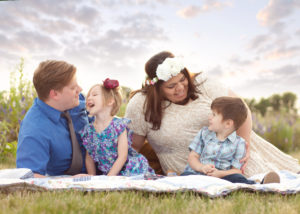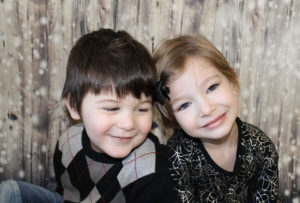
30 Nov From Foster to Fostering #FostersAdopt (Part 1)
From Foster to Fostering
A Personal Journey from Foster Kid to Adoptive Mother by Foster Care Alumnus Kay Beckman
Part I of II
I was just shy of two years old when my parents picked me up at their church from another family that had taken me in. I remember hearing that it was the week before Thanksgiving where they picked me up and the only word I could say was leche (Spanish for milk). I was so shy that I wouldn’t talk to anyone or make any eye contact. I had fallen by luck, or fate, into a home with two older brothers. The oldest was already in college when my parents picked me up. I was a surprise or miracle daughter that my mom had always wanted. I was passed back and forth between my parents and my biological mother for several years before I was adopted in an open adoption. I was, however, adopted separately from my three siblings. All of us were adopted apart and didn’t reconnect until adulthood. This began the journey of going from foster to fostering.
Growing up, adoption was a normal part of a conversation. I never shied away from saying I was adopted and being so thankful for my adoptive family. I think having an open adoption made me more aware of the process and what was really happening. When I was in kindergarten at my private Christian school, I would give my prayer request of the day and it was always, “that I would be adopted!” I wanted visits to end and I wanted to be my parents’ forever. My story is like and not like so many others in foster care. Foster children are passed back and forth, some long for adoption and visits to end, and yet others are broken about being adopted. We all have a place in this adoption conversation. I have to remind myself regularly as I raise my own adopted children: their story isn’t mine, and mine isn’t theirs. I can’t project my healing process, or how I chose to move on, onto them.
As an adoptive mother, I can sympathize with my own mother. I wonder how she felt when I had to go back to my biological mom. I wonder why she made the choice to keep my given name. I wonder if she cried like I did waiting for adoption day, or if she cried hearing of abuse that happened to me. I also wonder how my biological mom felt. Now that we have fostered so many and adopted, I know these women are struggling. I wonder if she wished she could keep us. I wonder how it felt to sign her name on the dotted line saying we weren’t hers anymore. I’m glad she realized she couldn’t do it, but I also wonder what pressure she felt. Were her rights being terminated anyway? What would have happened to us if she hadn’t signed? There are so many pieces to the puzzle that I don’t know, and likely won’t ever know, for my story and my kids.
I grew up wanting to foster. I wanted to be a foster mom and to adopt–I wanted to have a dozen children and be a miracle worker! My husband grew up with neighbors who had foster children, and he was completely on board when we signed up. I wanted to foster because I had been adopted and was so thankful for it.
Donate Today OR Join FCAA!
All people in and from foster care are connected, empowered, and flourishing
Foster Care Alumni of America’s vision is to ensure a high quality of life for those in and from foster care through the collective voice of alumni. We intend to erase the differences in opportunities and outcomes that exist for people in and from foster care compared to those who have not experienced foster care.








No Comments